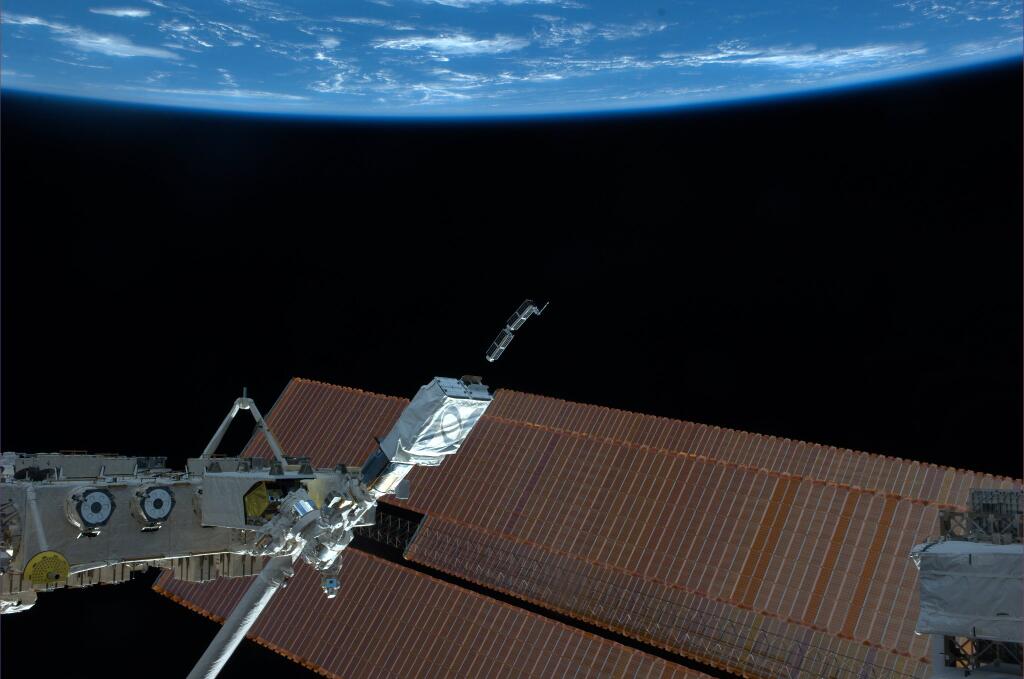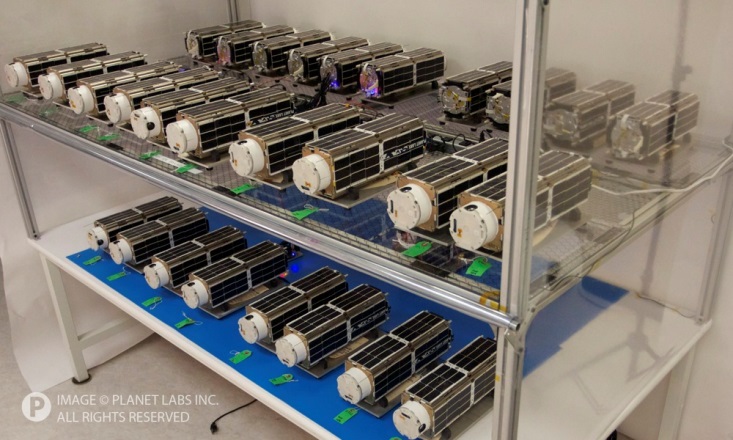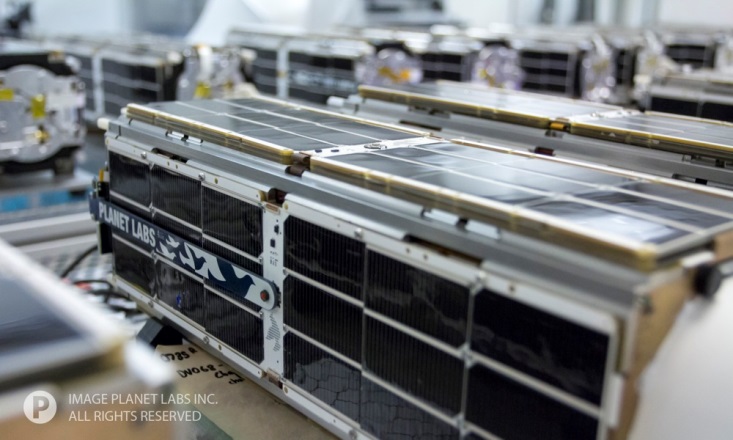First 'Cubesats' in Record-Breaking Fleet Launched from Space Station

The world's largest constellation of Earth-imaging satellites began taking shape today, as four tiny spacecraft were ejected from the International Space Station.
The four "cubesats," each about the size of a loaf of bread, were deployed from the space station this morning and began zipping freely around Earth. Twenty-four more will join them over the coming days, filling out the "Flock 1" satellite fleet operated by San Francisco-based startup Planet Labs.
Planet Labs' Flock 1 will provide frequent, low-cost, high-resolution imagery of Earth that could serve a variety of purposes, company officials say, from tracking deforestation and natural disasters to monitoring leaks in oil pipelines. [Planet Labs Photos of Earth from Space (Gallery)]
"Our company goal is to image everywhere very frequently, for everyone," Planet Labs co-founder Robbie Schingler said in a statement. "If you image everywhere, then that actually means that you can image anywhere. That’s going to be quite transformative for a number of countries, for a number of companies, and so forth. Our monitoring capability is always on. We are always taking a picture."
Each of the 28 cubesats that make up Flock 1 measures just 12 inches long by 4 inches wide by 4 inches tall (30 by 10 by 10 centimeters). But the tiny spacecraft are quite capable, capturing images with a resolution of 10 to 16.5 feet (3 to 5 meters), Planet Labs officials say.
The Flock 1 satellites will fly around Earth at altitudes ranging from 240 miles and 400 miles (386 to 644 kilometers). They'll gather imagery within 52 degrees of the equator — a huge swathe that encompasses most of the planet's agricultural regions and populated land.
The constellation is designed to be flexible, as each satellite's software can be reprogrammed easily from the ground, company officials say.
Breaking space news, the latest updates on rocket launches, skywatching events and more!
"Our ability to build and operate spacecraft will allow us to do more with these spacecraft in the future as we begin to think about the satellite segment as a very remote server with a whole bunch of sensors on board that could be reprogrammed to do other things," Schingler said.
The Flock 1 spacecraft were among 33 cubesats delivered to the orbiting lab Jan. 12 on the first contracted cargo mission of private spaceflight firm Orbital Sciences' unmanned Cygnus resupply spacecraft. All 33 will be ejected into Earth orbit over the coming days and weeks.
Today's deployment was not the first time Planet Labs has launched satellites into space. The company launched four prototype Earth-imaging cubesats as part of separate rocket launches last year, two spacecraft in April and two in November.
Follow Mike Wall on Twitter @michaeldwall and Google+. Follow us @Spacedotcom, Facebook or Google+. Originally published on Space.com.

Michael Wall is a Senior Space Writer with Space.com and joined the team in 2010. He primarily covers exoplanets, spaceflight and military space, but has been known to dabble in the space art beat. His book about the search for alien life, "Out There," was published on Nov. 13, 2018. Before becoming a science writer, Michael worked as a herpetologist and wildlife biologist. He has a Ph.D. in evolutionary biology from the University of Sydney, Australia, a bachelor's degree from the University of Arizona, and a graduate certificate in science writing from the University of California, Santa Cruz. To find out what his latest project is, you can follow Michael on Twitter.



